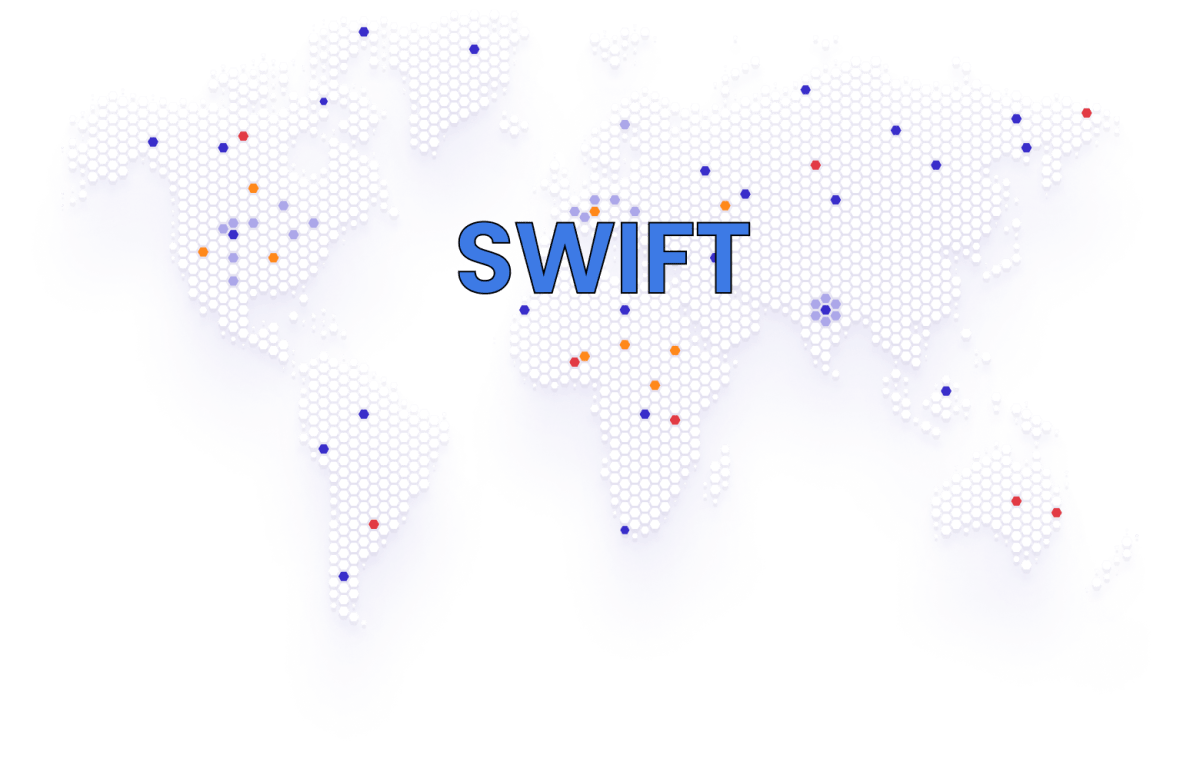Wire Payments SWIFT Network

The Society for Worldwide Interbank Financial Telecommunication, better known as SWIFT, is a global messaging network that facilitates cross-border transactions between banks and financial institutions. The SWIFT network provides a secure and reliable way for banks to communicate and exchange financial messages, including payment instructions, trade confirmations, and other types of financial transactions.
The SWIFT network was founded in 1973 and is headquartered in Belgium. It currently connects more than 11,000 banks and financial institutions in over 200 countries, making it the largest financial messaging network in the world. The network operates 24/7 and handles billions of messages each year, with an average of 32 million messages sent and received each day.
The SWIFT network operates on a secure messaging platform, which uses a standardized messaging format to ensure compatibility between different banks and financial institutions. The messaging format includes a set of standardized codes and fields, which are used to identify the sender and recipient of the message, as well as the type and purpose of the transaction.
The SWIFT network is also highly secure, with a range of measures in place to protect against fraud, cyberattacks, and other types of financial crime. This includes advanced encryption and authentication technologies, as well as strict security protocols and controls. Additionally, SWIFT has established a global network of security experts and analysts who monitor the network for potential threats and respond quickly to any incidents or breaches.
One of the key benefits of the SWIFT network is its ability to facilitate cross-border transactions quickly and securely. By using SWIFT, banks can exchange payment instructions and other financial messages in real-time, which helps to speed up the settlement process and reduce the risk of errors or delays. Additionally, because the SWIFT network is used by banks and financial institutions all over the world, it provides a standard platform for international trade and commerce, helping to simplify cross-border transactions and reduce costs.
Despite its many benefits, the SWIFT network is not without its challenges. One of the main criticisms of the network is that it can be slow and expensive, particularly for smaller banks and financial institutions. Additionally, there have been concerns about the security of the SWIFT network in recent years, with a number of high-profile cyberattacks and breaches affecting banks and other financial institutions.
In response to these challenges, SWIFT has been working to modernize and improve its network, introducing new technologies and protocols to enhance security and speed up transaction processing. Additionally, SWIFT has launched a range of new products and services in recent years, including SWIFT gpi (global payments innovation), which provides real-time tracking and monitoring of cross-border payments.
Overall, the SWIFT network remains an essential component of the global financial system, providing a secure and reliable way for banks and financial institutions to communicate and exchange financial messages. While there are challenges and criticisms to be addressed, the ongoing modernization and improvement of the network are helping to ensure its continued relevance and importance in the years to come.

CEO
Published at: 2023-03-21
